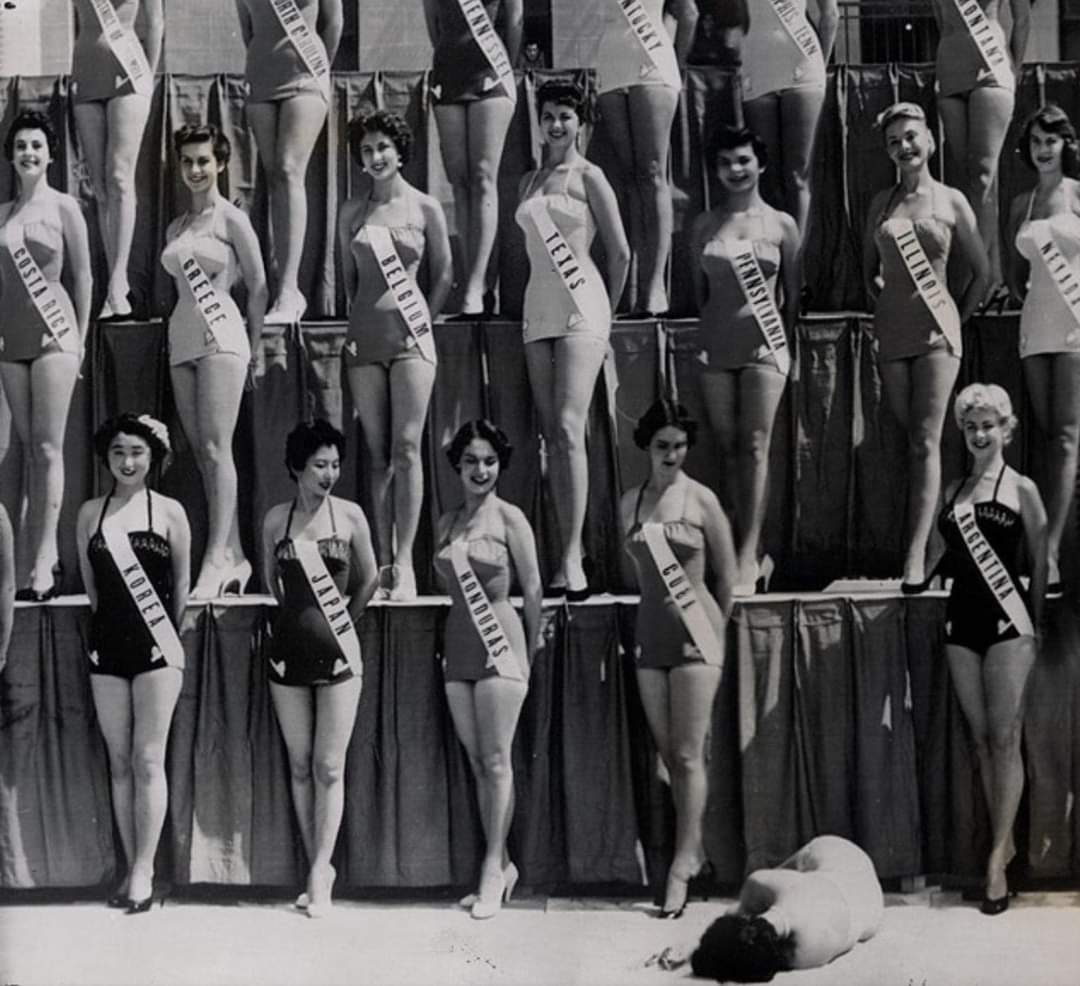Let’s get this out of the way!
I have spoken to a few people on the topic of fat liberation over the past month and watched activists and other professionals interact with countless others. And it almost seems like I have to first convince you, overwhelm you with indisputable facts, before the world can accept that fat people indeed deserve respect and shouldn’t be ridiculed or stereotyped or discriminated against. I feel obligated to produce a clean bill of health to make everyone believe that I deserve to be treated like a regular person.
Some of it is a direct result of how the supposed health risk is used as reason to justify the dehumanisation of fat people. If you were to just stop, look in the eyes of a person concern-trolling you at present, and simply say, “Yes, I am fat! So?” It is unlikely their response would be anything but coherent and strictly limited to, “But fat…unhealthy…you will die early.” People think they are allowed to treat fat people poorly because they have ‘chosen’ their body and if they don’t want to be shamed or rejected, they should ‘just lose weight’.
Also read: Fat Shaming Is A Feminist Issue And It’s Time We Talked About It
A couple of years ago when I first stepped into the world of fat liberation, the ideas they espoused reached me at a limited pace. The first fat person I came across on the Internet was a fabulous writer who was fat and happy and had built her life around writing about those two things, letting other people know they could be happy in their bodies too because her liberation is tied to ours.
And I suppose, I can understand where this stems from. A couple of years ago when I first stepped into the world of fat liberation, the ideas they espoused reached me at a limited pace. The first fat person I came across on the Internet was a fabulous writer who was fat and happy and had built her life around writing about those two things, letting other people know they could be happy in their bodies too because her liberation is tied to ours. No one is free until we are all free.
So when she said (contrary to what the world had always told me) that I didn’t have to lose weight to be happy, it was empowering and my first glimpse of fat liberation. But I also couldn’t stop thinking that nevertheless, I would still have to lose weight to be healthy or I would die early. Because god forbid should anyone ever die. As if death isn’t inevitable. According to society, we have to act as if we are immortals; do everything in our power to prolong our life, live forever until inescapably, we die. It would be immoral to do anything less.
There is a phenomenon that psychological literature calls ‘implicit bias’: It “refers to the attitudes or stereotypes that affect our understanding, actions, and decisions in an unconscious manner.” It is like a mother-tongue that we organically learned without ever having to read a book in it. In the same way, self-loathing and subjecting all atypical bodies to scrutiny and judgement is a language we have learnt from the very first day of our life. So when someone speaks a different language, that of fat liberation, it is a given that we would have trouble understanding. Our hate language isn’t potent at translating this new idea.
I was taught to hate my body. That I couldn’t be loved, have the things that I want, or live my life until I changed it. That it was abhorrent from the outside and similarly pathological on the inside. It was not until I read the brilliant book Health at Every Size by Dr Lindo Bacon that I was able to let go of that inside hate and take a step towards fat liberation. Not to say that all of the years of internalised phobia and oppression are already gone, fat liberation is a process. It is fair of you to demand that same confirmation I needed and I am going to tell you some of those facts.
The Body Myth
Our body does not get in our way to success and happiness. Dr Bacon in their book asks us to consider the following statements:
l. Being fat leads to an early death.
2. Being fat leads to disease.
3. Weight loss improves our health and longevity.
4. You are in control of what you weigh.
5. Anyone can keep lost weight off if they try hard enough.
6. Thinness is more attractive.
7. We can trust the health experts to provide accurate information.
For most of us, these are the basic truths of life; we live by these every day. However, each of the statements above and much of our perceptions of body weight is fallacious, fuelled by cultural biases and perpetuated by capitalist corporations.

Here’s the thing: Skinny and fat bodies can be healthy; skinny and fat bodies can be unhealthy. But according to popular notions, fat people die early and are overly susceptible to illnesses like diabetes, hypertension, and heart disease. Scientific medical research does not support these claims and in some cases have found evidence to the contrary. According to research, fat people with hypertension tend to live longer than thin people with hypertension. Furthermore, decades of autopsy studies have shown no relationship between body fat and atherosclerosis, the condition that leads to heart attacks or strokes.
The dangers of fat have been severely exaggerated and the shaming in the name of health concerns has not made us disappear. Instead, it has led to physiological and emotional complications as well as mental health challenges. People come in all sizes and thinness itself is not a mark of health. It is poodle science to expect otherwise, as is explained in the video put out by Association for Size Diversity and Health (ASDAH).
Diet culture
“Because every authority and institution urges us to fight fat, weight control is no longer merely a public health issue, but a moral imperative.”- Dr Bacon
Here’s a raw, unadulterated fact: There has been no long term research that shows any form of diet working and allowing people to permanently keep off the lost weight even if they strictly follow the advised eating habits. There are reports that indicate that 95 percent of people gain back the weight they lose through diet and exercise within 2 to 5 years, some weighing more than their starting weight. Simple scientific reasons explain this phenomenon that no diet company will ever tell us about.
Even though weight-loss experts keep chanting the supposedly simple phrase ‘calories in, calories out’, it isn’t in the least as simple as that. Our bodies functionally keep us from losing weight, and is said to be an adaptation strategy that evolved when famines were far more prominent. Due to which, it is easier to gain than to lose weight and an effort to deprive ourselves of food backfires.
Dr Bacon’s book further meticulously details how and why our body resists weight loss and it is possible to be healthy at any size.
Adding The ‘Cult’ In Culture:
“A culture fixated on female thinness is not an obsession about female beauty but an obsession about female obedience. Dieting is the most potent political sedative in history. A quietly mad population is a tractable one.” – Naomi Wolfe
Dieting is no longer limited to the shelves consisting of flavourful laxative juices or pills but has rather forged itself into a culture. So much so that it is impossible to get through a regular day without once encountering diet talk. It percolates every facet of our lives and shows up in different forms.
Virgie Tovar explains, when we share a small size pizza with not one but four of our friends, eat a carrot instead of a cookie, or skip a meal altogether, the sense of thrill that we get from that oppressive deprivation is diet culture. It isn’t fun for anyone but we still do it. That shame we get from every time we slip and fall on our resolutions and commitments is diet culture. It is a means in the hands of capitalism and misogyny and signifies our subjection and subjugation to the male gaze. We are told that the only thing standing between us and a more socially conforming body is willpower and self-control. And it isn’t limited until we can fit into a smaller dress or jeans but rather a lifestyle we have imposed on ourselves that will leave us feeling terrible forever. Because if we stop, we would gain weight, and that would mean we have lost.
Also read: Fat Shaming Is The Easiest Trope For Advertisers To Fall Back On
Unhealthy deserves love
Now that I have told you that the argument that fat people are unhealthy and going to die early is completely and utterly false; that to shame any body is reflective of our self-hate and produces no positive outcomes, only a terrible way to feel somewhat better about ourselves. Yet, a certain issue remains. I shouldn’t have to convince people that I am not going to die before my skin sags and my hair turns grey to be allowed to love myself and live in our body and in the way that I want to. No one should have to do that. That certainly isn’t fair.
The journey of fat liberation requires acceptance and self-love, which cannot come with caveats. Acceptance cannot be rooted in exclusion. “Unhealthy” bodies are just as wonderful, perfect, and deserving of self-love as all other bodies. Every one of us is.
Yes, there are fat bodies out there with high blood pressure and cholesterol and diabetes same as there are thin bodies with all of those things. Although, we tend to ignore the latter. The journey of fat liberation requires acceptance and self-love, which cannot come with caveats. Acceptance cannot be rooted in exclusion. “Unhealthy” bodies are just as wonderful, perfect, and deserving of self-love as all other bodies. Every one of us is.
As Sonya Renee Taylor explains, we did not start our life in a negative partnership with our bodies. A toddler doesn’t mourn the size of their thighs or the squishiness of their bellies. They love their bodies. Our shame for our gender, ethnicity, skin colour, disability, is all learned; all “a crappy inheritance”.

Anti-fatness is layered. As part of the fat liberation journey, once we take away the health stigma, we are forced to confront our biases that have no base other than societal mandates. And that is an uncomfortable place to go, to realise we have, unwittingly so, perpetuated oppression. But we have to sit with our discomfort, acknowledge our thoughts without judgement, learn, and be better in our steps towards fat liberation. Because once we get the health and diet myth out of the way, once we stop disguising our fear of fat as a health concern, we can get to the inner, truly insidious layers of systemic oppression. We and our journey of fat liberation has, in fact, only just begun.




